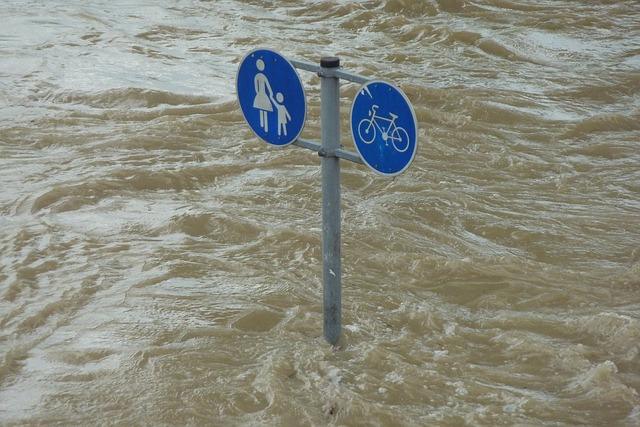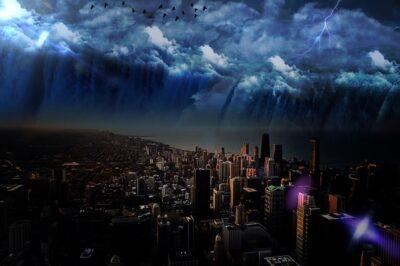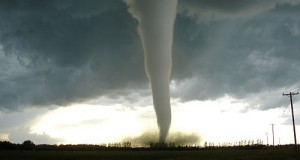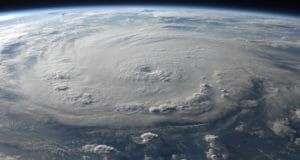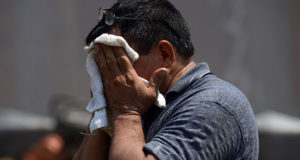There are people in the world preparing for every kind of disaster. Possible doomsday scenarios include economic collapse, biblical Armageddon, cyberattack, polar shift, enemy invasion, irreversible climate change, and electromagnetic pulse — just to name a few.
To some, it doesn’t matter how the end arrives. Others believe that the details do matter, because goods and skills that are important to carry a household through one potential disaster could be meaningless in another.
No matter which camp you are in, consider this: None of those catastrophic events are as likely to happen as smaller ones are. And the ultimate truth is that preparation for those smaller events is what will save lives and property.
Just as car accidents are most apt to happen close to home, so too are other mishaps. Prudence suggests that people should be ready at home first, and the best way to do so is prevention.
For example, the garage roof could cave in under a heavy snow load, but the likelihood of that happening is greatly diminished if the garage is well-constructed and the roof is kept clear. The next logical step for people who live in snow country and are concerned with disaster preparedness is to go out and buy a roof rake before winter hits.
My grandparents lived their lives in a rural mountain village, ready for anything. Ill health, bad weather, hungry passers-by in need of a meal, relatives arriving unexpectedly for an extended visit, misbehaving animals, and broken equipment. Maybe your grandparents did, too, and people today would do well to try and emulate their lifestyle.
The Easiest Way To Store A Month’s Worth Of Emergency Food!
Many Americans are descended from pioneers, the epitome of a people who were strong, self-reliant and resilient. They were also well-prepared for disaster. It wasn’t so much about the end of the world as they knew it, as it was about making a difference in the world they did know.
Our ancestors probably worried more about crop failure and livestock loss than the economy. Here again, the first steps were prevention — plant and weed and water diligently, and follow best practices for animal health — and being prepared for the unpreventable by canning overflow harvests to tide them over the leaner years and keeping extra animals when they could.
They might also have bartered, offering up labor and land use in exchange for food and fuel. They might have “gone without” sometimes, too, getting by on milk and cheese for protein when there was no meat.
Like them, we need to be mindful of the possibility of lean seasons. Twenty-first century sparsity might be the result of a job loss or an injury or even a divorce, but we need to be ready. Prevention is key, but a store of food, supplies and cash to tide us over whatever happens is essential.
Remember: Even though it is entirely possible that our national economy could collapse, it is also conceivable that personal economies will go south long before that happens.
Emergency Survival Seed Bank Provides THOUSANDS Of Pounds Of Food
And while some say climate change could have a major impact on the planet overall, it makes sense for individuals to focus on the climate they are in. Whether you believe it is a result of global warming or not, you can count on having inclement weather and other natural disasters where you live. Hurricanes, tornadoes, blizzards and earthquakes are a reality for many people, and preparedness is critical. It makes sense to be ready for them by storing enough food and water and medications and batteries to make it through whatever nature throws our way.
We might be invaded by enemy soldiers from another continent as well. But depending upon where you live, you are probably more likely to be attacked by local criminals or gang members or forest predators or small varmints trying to eat your chickens. It is wise to have on hand whatever measures you need to protect your home from those elements first.
The bottom line is this: Be prepared for what is truly the most likely occurrence. Take history into account, and consider how many Americans have gone hungry when they lost their jobs or suffered unduly from injuries or panicked over natural disasters or been robbed in their own neighborhoods. Those are the things to prepare for before you worry about big picture what-ifs.
It is a good idea to start close to home with your preparations, focusing on the things that could happen to your own household. Make sure you have enough food to last through a three-day blizzard and sufficient heating fuel for winter, or a good collection of flashlights and spare batteries, and supplies for pets.
From there, you can expand to potential community disasters, and then regional. Ramp up your supplies gradually, expanding to cover possible needs in case you are without power for a week, and later on consider surviving longer-term off the grid.
By starting with the basics, thinking about the most likely possibilities first, and keeping it real, you will be able to prepare yourself for all manner of disasters. Taking care of the smaller things will help move you into a position which will enable you to handle the bigger things. And if doomsday comes along, you will have been ready all along.
Do you agree or disagree? Share your thoughts in the section below:
Discover The Secret To Saving Thousands At The Grocery Store. Read More Here.
 Off The Grid News Better Ideas For Off The Grid Living
Off The Grid News Better Ideas For Off The Grid Living

